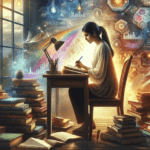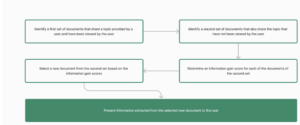Google has announced changes to its consent management tools to address the challenges advertisers face with evolving privacy regulations.
According to Google’s Ads Liaison, Ginny Marvin, the new integrated Consent Management Platform (CMP) setup will roll out globally over the next few weeks.
Introducing: Tag Diagnostics + new Consent Management setup in Google Ads, Google Analytics, and Google Tag Manager.
1. Tag Diagnostics: This is where you’ll find notifications about potential measurement set up issues & how to fix them, such as:
– If you need a conversion…— AdsLiaison I’m Away until 9/3 (@adsliaison) August 28, 2024
Consent Management Update
The update integrates with several of Google’s CMP partners within the Google Tag user interface across Google Ads, Google Analytics 4, and Google Tag Manager.
 Screenshot from: support.google.com, August 2024.
Screenshot from: support.google.com, August 2024.This change affects how advertisers can manage consent banners and deploy consent mode.
Marvin stated:
“Working with one of Google’s CMP Partners is typically the easiest way to manage consent banner and consent mode deployment. Now the consent mode setup in the Google Tag UI integrates directly with many of these partners.”
Features Of The New Setup
The integrated CMP setup includes:
- Guidance within the product interface
- Integration with various CMP providers
- Options for banner installation
Current CMP Partners
Four CMP providers are currently integrated with the new setup:
- consentmanager
- Cookiebot by Usercentrics
- iubenda
- Usercentrics
Broader Context
This update follows recent changes to digital privacy practices and regulations.
Earlier this year, Google updated its consent mode API with two new consent collection parameters.
In a blog post, Google noted,
“As privacy regulations evolve and technologies shift, we’ve continued to build tools that help advertisers succeed while respecting consumer choice.”
How This Can Benefit You
Google’s new integrated CMP setup could offer several advantages:
- Easier Setup: Less technical hassle when implementing consent management.
- Better Compliance: A streamlined process may help with GDPR adherence.
- Data Accuracy: Aims to maintain measurement quality while respecting consent.
- One-Stop Shop: Consent management directly in Google’s ad and analytics platforms.
- Future-Proofing: Potentially quicker adaptation to evolving privacy rules.
The actual impact and effectiveness remain to be seen as they roll out to users.
Industry Outlook
As the digital advertising industry adapts to privacy concerns, these updates represent one approach to balancing advertiser needs with data protection requirements.
Advertisers must assess how these changes fit into their broader data strategies and compliance efforts.
Staying on top of these updates is key as the ad tech world navigates the privacy-first era.
Featured Image: Daniel Pawer/Shutterstock



















